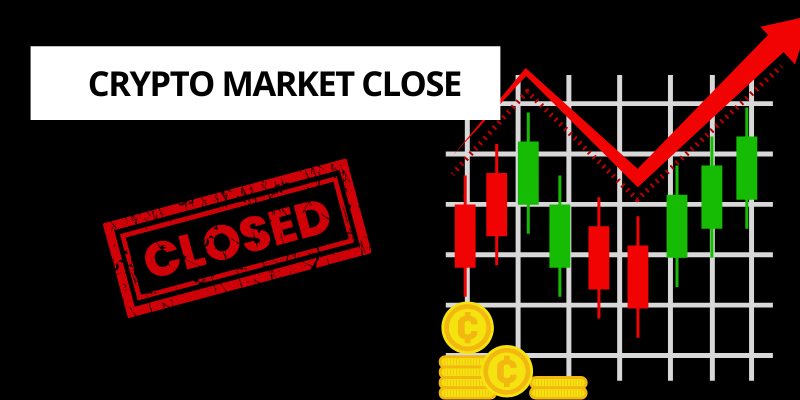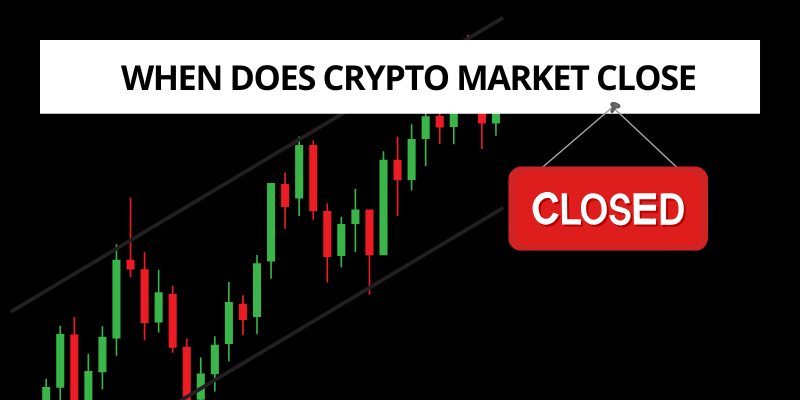For anyone entering the world of digital assets, one of the most common questions is “when does crypto market close?” The answer reveals a fundamental difference between cryptocurrencies and traditional financial instruments—a difference that has helped fuel the explosive growth and global reach of the crypto industry.
Crypto’s 24/7 Trading Revolution
Traditional stock and bond markets operate within strict opening and closing hours, typically aligned with the business day in their respective countries. In contrast, the crypto market operates on a 24/7 basis, meaning there is no official closing time. This continuous trading environment is made possible by the decentralized nature of blockchain technology, which allows transactions to be processed and validated at any time, from anywhere in the world.
Why Does the Crypto Market Never Close?
The answer to “when does crypto market close” lies in the infrastructure of cryptocurrencies. Unlike centralized exchanges or clearinghouses, blockchain networks are maintained by thousands of independent nodes distributed globally. This decentralized architecture ensures that there is always someone, somewhere, validating transactions and facilitating trades, regardless of local holidays or weekends.

Major crypto exchanges such as Binance, Coinbase, and Kraken have embraced this model, offering users the ability to buy, sell, and trade digital assets at any hour. This round-the-clock access has democratized trading and investing, enabling participation from every corner of the globe.
Exceptions: Scheduled Maintenance and Derivatives
While the spot market for cryptocurrencies is always open, there are a few caveats. Centralized exchanges may occasionally suspend trading for scheduled maintenance or emergency updates, but such interruptions are rare and typically brief57. In the derivatives market, products like futures and options may have specific trading hours or daily breaks, often to align with risk management protocols or to mirror traditional market structures.
For example, some platforms may pause derivatives trading for an hour each day or close over the weekend, but these restrictions do not apply to spot trading of actual cryptocurrencies.
Peak Trading Hours: When Is the Market Most Active?
Although the crypto market never closes, trading activity is not evenly distributed throughout the day. The most active periods tend to coincide with the overlap of major financial centers, particularly when both the US and European markets are open. Data suggests that the highest trading volumes occur between 3 PM and 4 PM UTC (10 AM to 11 AM EST), when liquidity is at its peak and spreads are typically tighter.
On weekends and during late-night hours in major markets, trading volumes can decrease, leading to wider spreads and potentially more volatile price movements. However, even during these quieter periods, the market remains accessible, with a significant portion of transactions still taking place.
A Comparison with Traditional Markets
| Market | Typical Hours | Weekend Trading | 24/7 Access |
|---|---|---|---|
| Stocks | 8 AM – 5 PM (local) | No | No |
| Forex | 24 hours, Monday–Friday | No | No |
| Crypto Spot Market | 24/7 | Yes | Yes |
| Crypto Derivatives | Varies, some daily breaks | Sometimes | Often |
The Impact of 24/7 Trading
The nonstop nature of the crypto market has profound implications for traders and investors. It allows for rapid response to global news and events, fosters a truly international market, and provides unparalleled flexibility for individuals in any time zone. However, it also means that price swings can occur at any time, demanding constant vigilance from active traders.

The Crypto Market Is Always Open
To answer the question “when does crypto market close”: the crypto spot market is open 24 hours a day, seven days a week, with no official closing time. This continuous accessibility is a defining feature of the digital asset space, setting it apart from traditional financial markets and offering unique opportunities—and challenges—for participants worldwide. While certain products like derivatives may have specific trading hours, and exchanges may pause for maintenance, the core crypto market remains perpetually active, embodying the relentless pace of the blockchain revolution

